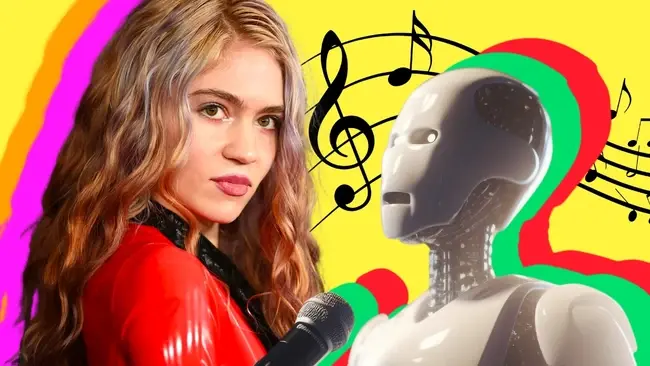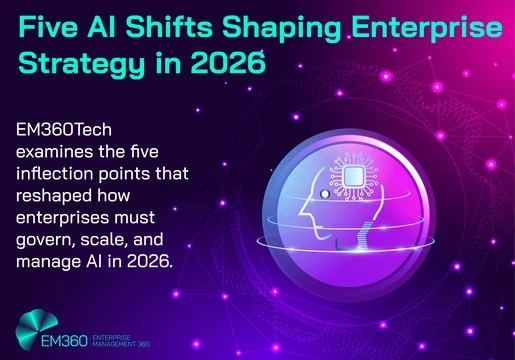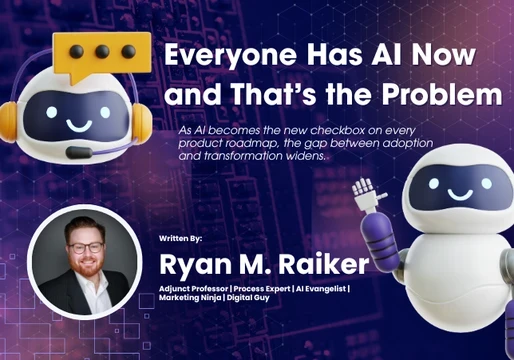As major record labels scramble to react to the string of AI songs trained on artists’ vocals, pop singer Grimes has invited fans to clone her voice to create AI-generated music.
The Genesis and Oblivion singer, whose real name is Claire Boucher, told fans on Sunday she would allow anyone to her voice as long as she was given royalties on AI-generated songs that make it big.
“I’ll split 50% royalties on any successful AI-generated song that uses my voice,” Grimes said in a Tweet posted on Twitter. “Same deal as I would with any artist I collab with.”
“I'm just curious about what even happens and interested in being a Guinea pig. Feel free to use my voice without penalty,” she said, claiming she has no label and “no legal bindings.”
Her declaration arrives in the wake of the AI-generated song 'Heart On My Sleeve' taking the internet by storm with deep fakes of multi-platinum artists The Weeknd and Drake last week.
Universal Studios quickly called for the son to be removed from streaming services, claiming in a statement that “the training of generating AI using our artists’ music” was “a violation of copyright law.”
That position, however, is yet to be tested in court. AI-generated content lies in a legal grey area as lawmakers struggle to conjure up legislation to deal with recent advances in AI software.
Regardless, the track was quickly pulled from streaming platforms as well as content-sharing platforms including Youtube and TikTok.
“We removed the video after receiving a valid copyright notification for a sample included in the video,” YouTube spokesperson Jack Malon said in a statement.
“Whether or not the video was generated using artificial intelligence does not impact our legal responsibility to provide a pathway for rightsholders to remove content that allegedly infringes their copyrighted expression.”
A report by The Verge found that Universal was able to get the track wiped from Youtube because it contained a sample of the producer Metro Booming saying his name, which was protected by copyright laws, rather than the song itself.

“Killing Copyright”
Copyright law depends on the idea of making a carbon copy – whether it’s an image, a melody or a lyric – through the use of a sample, or making making work that derives from that sample.
Since 'Heart of My Sleeve' did not directly lift elements from Drake or The Weeknd’s previous songs, it does not directly infringe on current copyright laws through its deep fake of the artists’ vocals.
What’s more, the US Copyright Office recently ruled that AI art, including music, can't be copyrighted as it is "not the product of human authorship". It remains unclear whether art that is created by an AI is subject to copyright. But record labels taking a strong stance in preventing AI artists from entering the music industry.
“UMG’s success has been, in part, due to embracing new technology and putting it to work for our artists–as we have been doing with our own innovation around AI for some time already, Universal said in a statement to Music Business Weekly.
“The availability of infringing content created with generative AI on DSPs, begs the question as to which side of history all stakeholders in the music ecosystem want to be on: the side of artists, fans and human creative expression, or on the side of deep fakes, fraud and denying artists their due compensation.”
For now, Grimes appears to have taken the side of AI. As fans questioned her decision to make her voice open-source, she said that fans should “expect a certain amount of chaos."
Sure - anything anyone wants. Im just curious what even happens and interested in being a Guinea pig.
— 𝔊𝔯𝔦𝔪𝔢𝔰 (@Grimezsz) April 24, 2023
“Grimes is an art project, not a music project. The ultimate goal has always been to push boundaries rather than have a nice song. The point is to poke holes in the simulation and see what happens even if it's a bad outcome for us," Grimes wrote in a retweet of the concerned fan.
“I think it's cool to be fused w[ith] a machine and I like the idea of open-sourcing all art and killing copyright,” she added.
Music and Machines
Grimes isn’t the only artist to embrace voice cloning and generative AI music tools. The experimental musician Holly Herndon introduced her own AI voice called Holly Plus in 2021, allowing users to upload files and receive a new version sung by her voice.
Grime’s music has always lied in a threshold between humanity and machines, with songs like We Appreciate Power and Flesh Without Blood exploring the ethical quandaries surrounding AI.
To read more generative AI, visit our dedicated AI in the Enterprise Page.
Unlike her ex-husband Elon Musk – who recently signed a letter calling for a pause in the development of AI systems – she has expressed her support for a technological revolution fuelled by AI.
In an interview with the New York Times, she said she was inspired to create "a better baby sleeping situation" for their son using the artificial software.
"I think AI is great," she said in the interview. "Creatively, I think AI can replace humans – and so I think at some point, we will want to, as a species, have a discussion about how involved AI will be in art."
A legal minefield for Google
With Grimes and a handful of other artists on board for the AI music takeover, the ethical and legal battle surrounding AI-generated art continues.
Grimes the problem was never using your voice in AI it was this comment “killing copyright”, then placating you have ethics by saying -don’t use it for bad stuff or I’ll copyright strike. When you’ve already said you’re ok with exploiting people by promoting & using ML image gens https://t.co/RE2kglkZNj pic.twitter.com/VXmCtbXUmS
— 🏮 Zakuga Mignon Art🏮 (@ZakugaMignon) April 25, 2023
In many jurisdictions, using information without the owner's consent is permitted under certain circumstances, including news reporting, quoting, teaching, satire or research purposes.
While AI developers like OpenAI may be able to use this argument to defend their collection of data, problems arise when they monetize their products.
In January, Getty Images filed a lawsuit against AI Art Generator Stability AI for allegedly stealing millions of copyright-protected images to train its AI image generator Stable Diffusion, which charges users a fee to generate premium types of content.
But the problem with AI-generated music is that, unlike art and images, the final product produced by the AI is not actually a copy of anything other than an imitation of the original artists’ voice.
“Right now the legal minefield is still not packed with mines because legal has a tendency to follow after technological disruption. But the minefield is there, and it’s real," said Jonathan Løw, the co-founder of JumpStory.
If the creator of “Heart on My Sleeve” was to upload the song without that Metro Boomin tag that infringed Youtube’s copyright rules, it would kick off a copyright war that juxtaposes the future of Google directly against the future of YouTube
Google will either have to stop all of its generative AI projects, including Bard and the future of search, or provide a platform for creators to steal content from YouTube partners like Universal Music, Drake, and The Weeknd.







Comments ( 0 )